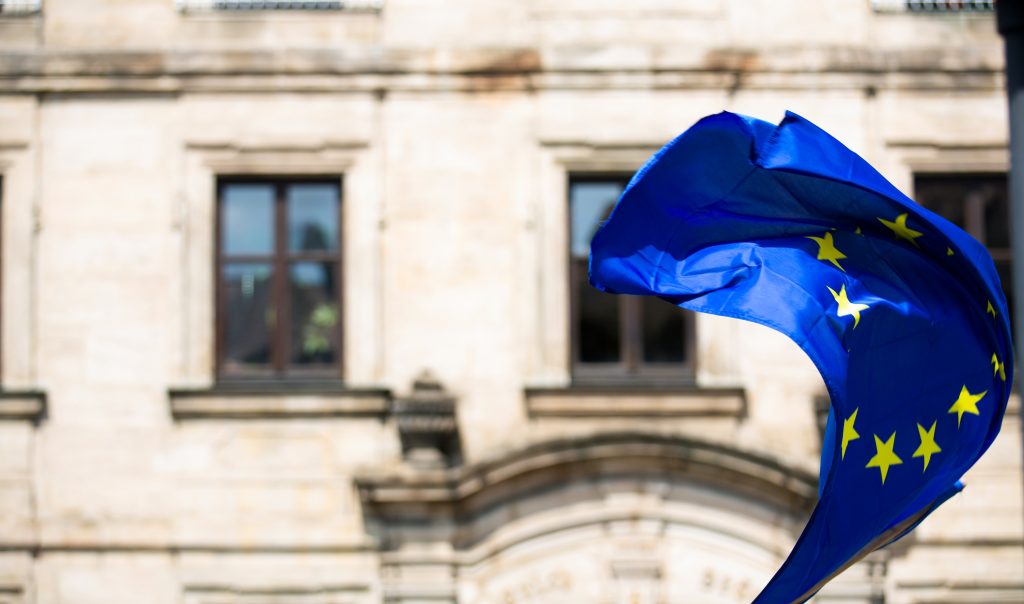How Does the European Union Work? A Comprehensive Guide

The European Union (EU) is a political and economic union of 27 member states located primarily in Europe. It is a unique organization that has its own legislature, executive, and judiciary. The EU is responsible for governing common economic, social, and security policies, and has a central bank that oversees the euro, the common currency of most EU member states.
The EU was established in the aftermath of World War II to promote peace, stability, and economic prosperity in Europe. The EU’s founding treaties, the Treaty of Paris and the Treaty of Rome, established the framework for the EU’s institutions and policies. Over the years, the EU has expanded its membership and its scope of activities, and has become one of the world’s most powerful economic and political entities.
Understanding how the EU works is essential for anyone who wants to do business in Europe, study or work in an EU member state, or simply wants to understand how the EU affects their daily life. This article will provide an overview of the EU’s institutions, its decision-making process, and its policies, and will explain how the EU works to promote the interests of its member states and citizens.
The Structure of the European Union
EU Institutions
The European Union is a complex organization made up of several institutions that work together to govern the EU. The main institutions of the EU are:
- European Council: The European Council is made up of the heads of state or government of the EU member states. It sets the EU’s overall political direction and priorities.
- Council of the European Union: The Council of the EU represents the governments of the EU member states. It negotiates and adopts EU laws, coordinates EU policies, and develops the EU’s foreign and security policies.
- European Parliament: The European Parliament is the only directly elected EU institution. It represents the citizens of the EU member states and has the power to adopt, amend, and reject EU laws.
- European Commission: The European Commission is the EU’s executive branch. It proposes new EU laws, enforces EU law, and manages the day-to-day business of the EU.
- Court of Justice of the European Union: The Court of Justice of the EU is responsible for interpreting EU law and ensuring that EU law is applied in the same way across all EU member states.
EU Bodies
In addition to the main institutions, there are several other bodies that play a role in the EU, including:
- European Central Bank: The European Central Bank is responsible for managing the euro and ensuring price stability in the eurozone.
- European External Action Service: The European External Action Service is responsible for the EU’s foreign and security policies.
- European Economic and Social Committee: The European Economic and Social Committee represents the interests of organized civil society in the EU.
- Committee of the Regions: The Committee of the Regions represents the interests of local and regional authorities in the EU.
Each of these institutions and bodies has a specific role in the governance of the EU. Together, they work to ensure that the EU functions effectively and meets the needs of its citizens.
EU Law-Making Process
The European Union has a complex law-making process that involves three main institutions: the European Parliament, the Council of the European Union, and the European Commission. This section will provide an overview of the EU law-making process, including the proposal stage, legislative stage, and implementation stage.
Proposal Stage
The EU law-making process begins with a proposal from the European Commission, which is responsible for initiating legislation. The Commission drafts a proposal and sends it to the Council of the European Union and the European Parliament for consideration. The proposal is also sent to national parliaments and other relevant bodies for examination.
Legislative Stage
The legislative stage of the EU law-making process involves the Council of the European Union and the European Parliament. The Council represents EU governments, while the Parliament represents EU citizens. The two institutions work together to adopt legislation through the ordinary legislative procedure.
During the legislative stage, the Council and the Parliament review the Commission’s proposal and make amendments as necessary. The proposal is sent back and forth between the two institutions until a compromise is reached. Once a compromise is reached, the legislation is adopted.
Implementation Stage
The final stage of the EU law-making process is the implementation stage. This involves the national governments of EU member states. National governments are responsible for implementing EU law in their respective countries.
The implementation stage includes the adoption of implementing and delegated acts, which are necessary to ensure that EU law is applied uniformly across all member states. National parliaments also play a role in the implementation stage by monitoring the application of EU law.
Overall, the EU law-making process is a complex and collaborative effort that involves multiple institutions and member states. By working together, the EU is able to create and implement legislation that promotes the interests of all its citizens.
EU Policies and Themes
The European Union has a range of policies and themes that guide its decision-making processes. These policies and themes are developed through a collaborative effort between the EU institutions and member states. In this section, we will explore some of the main policies and themes of the EU, including Economic Policy, Environmental Policy, and Foreign and Security Policy.
Economic Policy
The EU has a range of economic policies that are designed to promote growth, stability, and prosperity across the region. One of the key economic policies of the EU is the European Monetary Union, which introduced the euro as a common currency in 1999. This policy has helped to facilitate trade and investment across the region and has contributed to the economic growth of member states.
Other economic policies of the EU include the Common Agricultural Policy, which aims to support farmers and promote sustainable agriculture, and the European Regional Development Fund, which provides funding for infrastructure and economic development projects in less developed regions.
Environmental Policy
The EU is committed to protecting the environment and promoting sustainable development. The EU’s environmental policies are designed to address a range of issues, including climate change, air and water pollution, and biodiversity loss.
One of the key environmental policies of the EU is the European Green Deal, which aims to make the EU climate-neutral by 2050. This policy includes a range of measures, such as increasing the use of renewable energy, improving energy efficiency, and promoting sustainable transport.
Other environmental policies of the EU include the Water Framework Directive, which aims to protect and improve the quality of Europe’s water resources, and the Birds and Habitats Directives, which aim to protect Europe’s biodiversity.
Foreign and Security Policy
The EU has a range of foreign and security policies that are designed to promote peace, stability, and security across the region and beyond. The EU’s foreign and security policies are developed through a collaborative effort between the EU institutions and member states.
One of the key foreign and security policies of the EU is the Common Foreign and Security Policy, which aims to promote a coordinated approach to foreign policy and security issues among member states. This policy includes a range of measures, such as diplomatic efforts, economic sanctions, and military missions.
Other foreign and security policies of the EU include the European Neighbourhood Policy, which aims to promote stability and prosperity in Europe’s neighbouring countries, and the Common Security and Defence Policy, which aims to enhance the EU’s capacity to respond to crises and conflicts.
EU Membership
Accession Process
The process of becoming a member of the European Union is a complex and lengthy one. Any country that meets the conditions for membership can apply to join. The European Council, the European Commission, and the European Parliament are the three institutions directly involved in the process of membership expansion.
Once a country applies to join the EU, it must go through a series of steps, including negotiations with the EU and implementing EU rules and regulations in all areas. The European Commission assesses the country’s readiness to join, and if it meets the criteria, the European Council invites the country to start accession negotiations.
During the negotiations, the candidate country must adopt and implement all EU laws and regulations, including the acquis communautaire, which is the body of EU law that must be adopted by all new members. The negotiations cover a wide range of areas, including economics, trade, agriculture, and justice.
Member States Responsibilities
Once a country becomes a member of the EU, it gains certain rights and responsibilities. Member states are expected to uphold the values and principles of the EU, including democracy, the rule of law, and human rights. They must also implement EU laws and regulations in all areas, including the acquis communautaire.
Member states have a say in the decision-making process of the EU through the European Council, the Council of the European Union, and the European Parliament. They also contribute to the EU budget and participate in EU programs and initiatives.
In addition, member states must work together to address common challenges and issues, such as climate change, security, and migration. The EU provides a platform for member states to collaborate and find solutions to these challenges through various mechanisms, such as the European Green Deal and the Common Security and Defence Policy.
Overall, becoming a member of the EU is a complex and lengthy process, but it provides countries with numerous benefits, including access to the EU’s single market, increased economic opportunities, and a platform for collaboration and cooperation on common challenges and issues.
EU Budget and Funding
The European Union’s budget is a crucial element of its functioning. It allows the EU to achieve more than its member states could by acting alone. The budget is negotiated, adopted, and spent by the EU institutions, with the European Commission being the main actor in this process.
The EU budget is funded by various sources, including customs duties, value-added tax, and contributions from member states. The main sources of EU revenue are the traditional own resources, which are based on the gross national income of each member state, and the VAT-based own resource.
The EU budget is mainly dedicated to investment, and it adopts long-term spending plans known as multiannual financial frameworks (MFFs) that run for a period of 5-7 years. The current MFF runs from 2021 to 2027. The long-term budget sets out the EU’s spending priorities and limits, and it is divided into different categories.
The EU budget is decided through a complex process that involves both the European Parliament and the Council of the European Union. The European Commission proposes the budget, and the Parliament and the Council have equal decision-making power. The Parliament can adopt amendments to the Council’s position, and if their views diverge, a conciliation committee is convened to find a compromise within three weeks.
The European Commission manages EU funding programs, which are designed to support different policy areas, such as research and innovation, regional development, and agriculture. The EU also provides funding for external actions, such as development aid and humanitarian aid.
Overall, the EU budget is a crucial tool for the EU to achieve its objectives and support its member states. It ensures that the EU can invest in areas that are important for the future of Europe, such as research and innovation, and it helps to promote economic growth and social cohesion across the EU.
Challenges and Criticisms of the EU
The European Union has faced several challenges and criticisms over the years, including:
- Brexit: The UK’s decision to leave the EU has been a significant challenge for the bloc. It has raised questions about the EU’s future and its ability to hold its member states together. Brexit has also highlighted the issue of immigration, which has been a contentious topic within the EU.
- Economic Challenges: The EU has faced economic challenges, including the Eurozone crisis, which began in 2008. The crisis led to high levels of unemployment, particularly in Southern Europe. The EU has also struggled to stimulate economic growth, with some member states experiencing low levels of growth for many years.
- Democratic Deficit: Critics of the EU argue that it suffers from a democratic deficit, with decisions being made by unelected officials. They argue that the EU is not accountable to its citizens and that its institutions are too distant from ordinary people.
- Lack of Transparency: Some critics argue that the EU lacks transparency, with decision-making processes being opaque. They argue that this lack of transparency makes it difficult for citizens to hold the EU accountable.
- Nationalism and Populism: The rise of nationalism and populism within some member states has posed a challenge to the EU. Some politicians have used anti-EU rhetoric to gain support, which has led to tensions between member states.
Despite these challenges and criticisms, the EU remains an important political and economic bloc. The EU has taken steps to address some of these challenges, such as increasing transparency and accountability. However, it will continue to face challenges in the future, and it will need to adapt to changing circumstances to remain relevant.
Frequently Asked Questions
What is the role of the European Commission in the EU?
The European Commission is the executive branch of the European Union. It is responsible for proposing and enforcing EU laws, managing the EU budget, and representing the EU in international affairs.
What is the purpose of the European Parliament?
The European Parliament is the directly elected legislative body of the European Union. Its main purpose is to represent the citizens of the EU and ensure that their interests are taken into account in the EU decision-making process.
What decisions are made by the European Council?
The European Council is the EU institution that sets the political direction and priorities of the EU. It is composed of the heads of state or government of the EU member states and the President of the European Council. The European Council makes decisions on major issues such as the EU’s budget, foreign policy, and economic policies.
How does the Council of the European Union operate?
The Council of the European Union, also known as the Council of Ministers, is the EU institution that represents the member states’ governments. It is responsible for negotiating and adopting EU laws, coordinating member states’ policies, and managing the EU’s external relations.
Who is the current President of the European Commission?
As of June 2023, the current President of the European Commission is Ursula von der Leyen.
What are the benefits of being a member of the European Union?
The benefits of being a member of the European Union include access to the world’s largest single market, the ability to participate in the EU decision-making process, the opportunity to cooperate with other EU member states on common policies and programs, and the ability to benefit from EU funding and programs.












